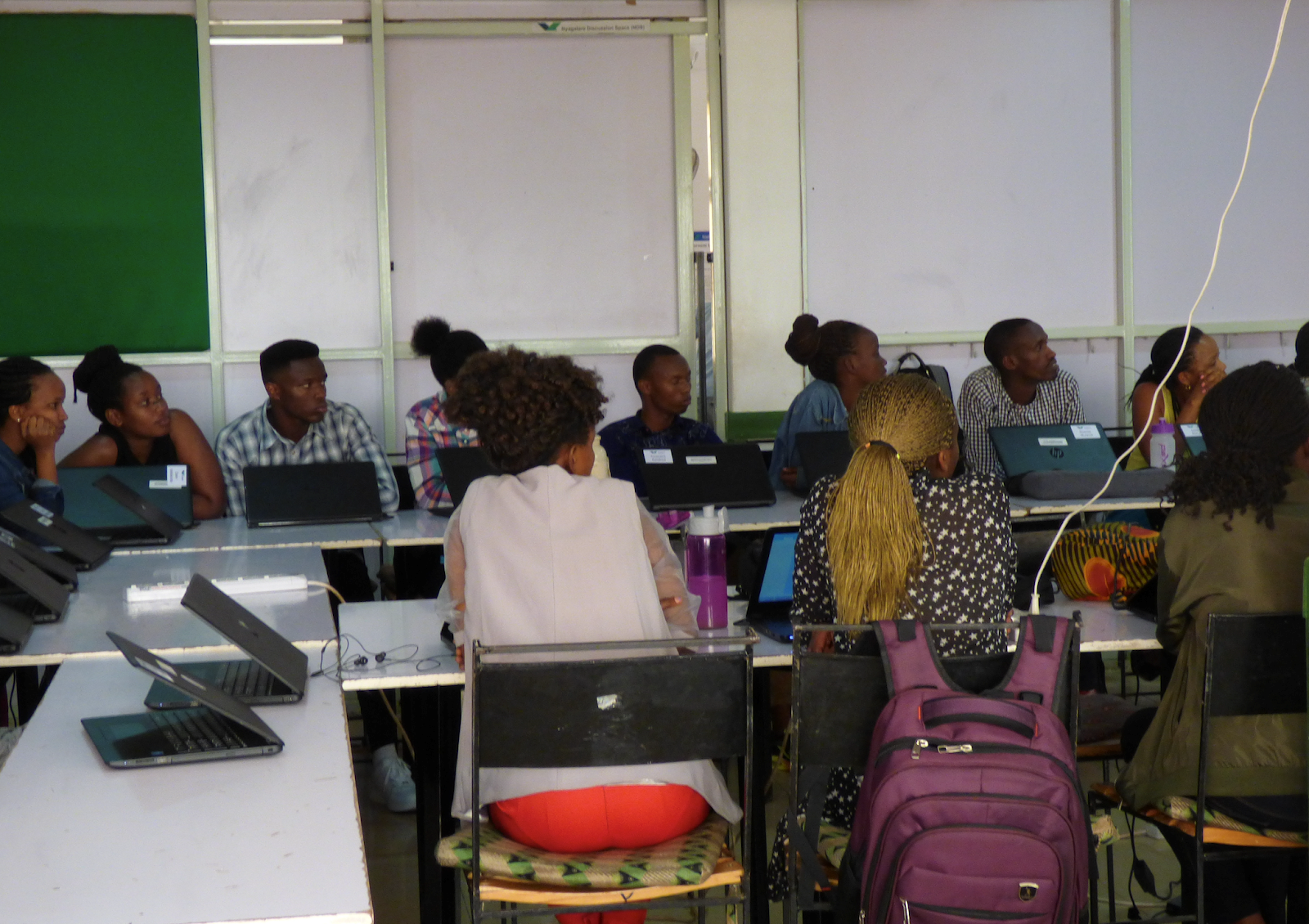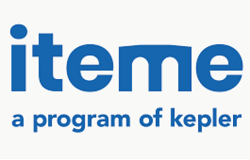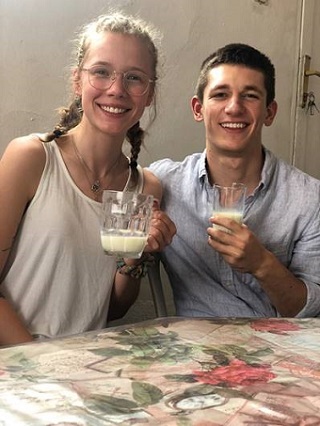
Kepler, headquartered in Kigali, Rwanda, aims to propel “higher education for all” and revolutionize the tertiary education landscape for low-income students in East Africa, through their unique program in partnership with Southern New Hampshire University (SNHU). Through their partnership with SNHU, Kepler offers American-accredited degrees to Rwandan, international, and refugee students at either their main campus in Kigali or at the Kiziba Refugee Campus. In fact, Kepler is currently the only organization that offers American-accredited degrees in all of Rwanda! The social enterprise is able to boast a 90% employment or further education rate for their students within 6-months of completing their degree, and prides itself in developing key professional competencies for the workplace through strong communication, organization, and practical skills. Kepler uses a 120-competency model, implemented from Southern New Hampshire University’s system, which requires students to complete hands-on projects in order to progress their education. A combination of online modules and in-person, foundational courses in Kigali contribute to Kepler’s novel education model. Supplemented by rigorous internship programs and a focused Career Department here at Kepler, students are set up for success post-completion.

Kepler recently expanded its programming to support its educational mission, and meet the needs of rural, impoverished students. Recognizing that access to quality secondary school in Rwanda, at refugee campus, or in neighboring countries can be extremely limited, Kepler expanded its programming in 2018 to launch preparation opportunities for students who have completed secondary school without being adequately ready for tertiary education. Kepler calls these preparation programs “Iteme” which means ‘bridge’ in Kinyarwanda, the national language in Rwanda. Iteme is separate from Kepler’s tertiary institution, and admission to Kepler still remains very competitive upon completion of Iteme. For example, in a recent cohort, Kepler had an acceptance rate hovering around 4% for its tertiary program.
 At Kepler, our team has three central deliverables. First of all, we were responsible for analyzing data collected from the 2018 Iteme cohort and creating a follow-up report with feedback as well as suggestions for improvements. Our team completed this deliverable within our first two weeks here. We spoke with student focus groups here in Kigali and staff from Iteme programs at the Mahama, Maison Shalom, and Kabusunzu sites in Rwanda. A mixture of quantitative and qualitative analysis factored into our recommendations, which included:
At Kepler, our team has three central deliverables. First of all, we were responsible for analyzing data collected from the 2018 Iteme cohort and creating a follow-up report with feedback as well as suggestions for improvements. Our team completed this deliverable within our first two weeks here. We spoke with student focus groups here in Kigali and staff from Iteme programs at the Mahama, Maison Shalom, and Kabusunzu sites in Rwanda. A mixture of quantitative and qualitative analysis factored into our recommendations, which included:
- Setting clear expectations about program outcomes with students and parents at the onset of Iteme
- Addressing barriers to access like transportation issues and certain gendered responsibilities facing female students
- Providing adequate support systems for students who have completed Iteme without receiving admission to Kepler
- Adjusting curriculum to reflect issues with internet connectivity while increasing the duration of time spent on discussions, technology practice, and English practice
For many students partaking in Iteme, the three months they spend with the program may be their first time utilizing technology and speaking English. Iteme seeks to generate dramatic improvements in student performance levels by program completion, so adjusting curriculum to reflect student competency levels and speed of progress is key.
While creating recommendations for the Iteme program, our team also learned quite a bit about Kepler’s commitment to gender equity both in the Iteme program and the tertiary institution, itself. At Iteme sites located near large refugee populations, Kepler faced significant challenges in recruiting female students. Keep in mind– Kepler is offering an unparalleled opportunity to receive crucial personal and professional skills through Iteme programming– but families disproportionately pressured young women to take on low-paying employment opportunities in refugee settlements rather than even attempt attending an educational program like Iteme. A staff member from the 2018 Iteme Cohort described the process of noticing only two female students in a crowd of over ninety male students on the first day of Iteme programming at one of Kepler’s selected program sites. She, then, explained that male students were told that the Iteme program would have a strict 50/50 female to male ratio and were strongly encouraged to bring a female participant (sister, cousin, wife etc.) with them to Iteme the next day in order to continue with the program. Our team realized that even when social enterprises and programs have the best intentions of propelling and advancing gender equity, recruiting even numbers of female and male students can be a tough hurdle to overcome.

After completing our first deliverable, our team has begun our second deliverable. We are now looking at Kepler’s outreach efforts and how effective their recruitment initiatives are on the basis of geographical and socio-economic diversity. We are working on creating a visual map including where Kepler applicants come from and where Kepler concentrates its own outreach. In addition, we recently received Kepler applicant information from the past three years, and are combing through data and recorded lists. At the same time, we are looking at Ubudehe Levels reported by students applying to and accepted to Kepler. Ubudehe Levels are a unique concept in Rwanda, which categorize Rwandan family into income groups (1 being the lowest level with the most impoverished Rwandan families and 4 being the highest level with greater income levels). Our team is hoping to gain a better understanding of the socioeconomic breakdown of Kepler’s applicants and students soon. Once we complete our visual map of outreach and learn more about students’ backgrounds, we will look into creating recommendations or suggestions for improving outreach efforts and perhaps financial diversity.
 Outside of completing our deliverables, we have been conducting interviews with key players on ground to gain a better understanding of how Kepler operates and seeks to grow, in order to reach their goal of serving 4,500 students by 2022. We have also been observing classes taught here at Kepler, including a foundational class centered on professional skills and a college algebra lesson. Joining calls related to technology challenges here at Kepler have been informative for us, as a team, too. We are grateful to be in such a supportive atmosphere at Kepler, and look forward to seeing how our work here progresses.
Outside of completing our deliverables, we have been conducting interviews with key players on ground to gain a better understanding of how Kepler operates and seeks to grow, in order to reach their goal of serving 4,500 students by 2022. We have also been observing classes taught here at Kepler, including a foundational class centered on professional skills and a college algebra lesson. Joining calls related to technology challenges here at Kepler have been informative for us, as a team, too. We are grateful to be in such a supportive atmosphere at Kepler, and look forward to seeing how our work here progresses.

Kepler students and staff are truly inspiring. Several of Kepler’s top-performing students join staff upon program completion, and are providing us with interesting perspectives on their educational experience and how advantageous a Kepler-Southern New Hampshire University degree can be in Rwanda. We are in awe of how talented our colleagues are, and look forward to our next month here in Kigali. Learn more about Kepler at www.kepler.org!
Photos Above: The photos utilized above are either from the Kepler website, or taken by Zodi Chalat (Yale ’21), Ananya Kachru (Yale ‘22) or Willow Sylvester (Yale ‘21).
